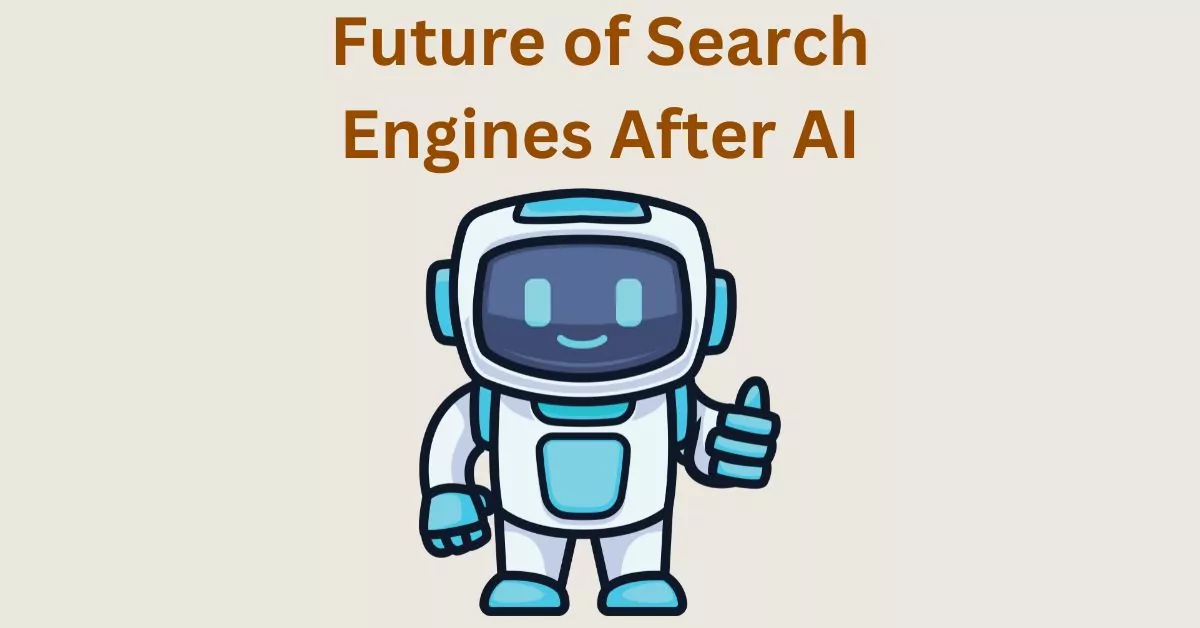Future of Search Engines After AI – Challenges, Opportunities and Privacy Concerns
Estimated reading time: 4 minutes
Last updated on March 26th, 2024 at 07:16 am
Do you want to know the “Future of Search Engines After AI”?
Picture search engines like Google as super-smart librarians who help you find information on the internet.
With AI, or artificial intelligence, these search engines are becoming even smarter.
They can understand what you’re looking for, even if you don’t type it perfectly.
Did you know that by 2025, around 50% of all searches were expected to be voice searches and Chatbots?
That’s because AI helps search engines understand spoken words and Natural language processing technology like ChatGpt and Bard (Gemini).
Plus, AI helps personalize search results based on your preferences, making it easier to find what you need.
AI-Powered Search: A Game-Changer
Imagine if when you searched for something online, the results were super smart and knew exactly what you wanted, even if you didn’t type it out perfectly.
That’s what AI-powered search does!
It’s like having a super-smart assistant that knows just what you’re looking for.
AI helps make those searches more accurate and helpful.
Enhanced User Experience: Personalization and Contextualization
Think about when you visit a website, and it feels like it knows you so well!
That’s because of personalization and contextualization.
It’s like walking into your favourite store, and the staff already know your size and what you like to buy.
By 2023, 72% of consumers said they only engage with personalized messaging.
So, when websites use these techniques, it makes your experience online smoother and more enjoyable.
The Rise of Voice Search and Chatbots
Have you ever asked Siri or Alexa to help you find something? That’s voice search in action!
It’s like having a conversation with your phone or smart speaker.
By 2025, it was estimated that voice commerce sales would reach $19 billion in the US alone!
Chatbots are like helpful assistants you can talk to online.
They can answer questions, help you shop, and even book appointments.
By 2026, it was predicted that 85% of customer interactions would be handled without a human.
Addressing Privacy Concerns in AI-Driven Search
Privacy is super important when it comes to using technology like AI-driven search.
It’s like making sure your secrets are safe in a locked diary.
People worry about their personal information being shared without their permission.
That’s why companies have to be careful about how they use AI to collect and store data.
By 2023, 77% of consumers said they were concerned about their privacy online.
So, companies must be transparent about how they handle your data and give you control over your privacy settings.
Challenges and Opportunities in AI-Enabled Search
Imagine if searching online was like trying to find a needle in a haystack.
That’s one of the challenges AI-enabled search faces.
It’s like teaching a computer to understand what you’re really asking for, even if you don’t say it perfectly.
But with challenges come opportunities!
AI can help us find things faster and more accurately.
By 2024, it’s estimated that the global AI in the search market will reach $123.6 billion, showing a huge growth potential.
Beyond Traditional Search: Integrating AI into Everyday Tasks
Traditional search is like looking up information on Google.
But what if AI could help us with more than just searching?
It’s like having a super-smart assistant who can help with all sorts of tasks, from scheduling appointments to managing your to-do list.
By 2025, the global market for AI in everyday tasks is expected to reach $4.3 billion.
So, integrating AI into our daily lives could make things easier and more efficient.
Wrapping Up – Future of Search Engines After AI
As artificial intelligence (AI) gets better, so will search engines.
They’ll become smarter at understanding what we’re looking for and give us more relevant results.
This means when you search for something, you’ll get exactly what you need, faster and easier.
These improved search engines will change how we shop online, find information, and even get medical advice.
But we also need to make sure that these advancements respect our privacy and are used ethically.
